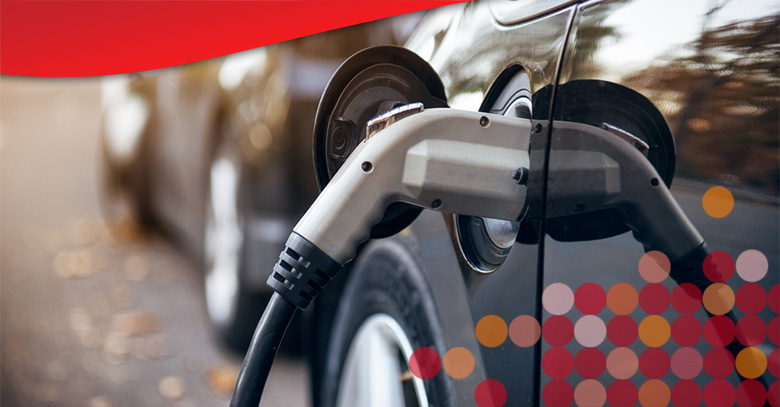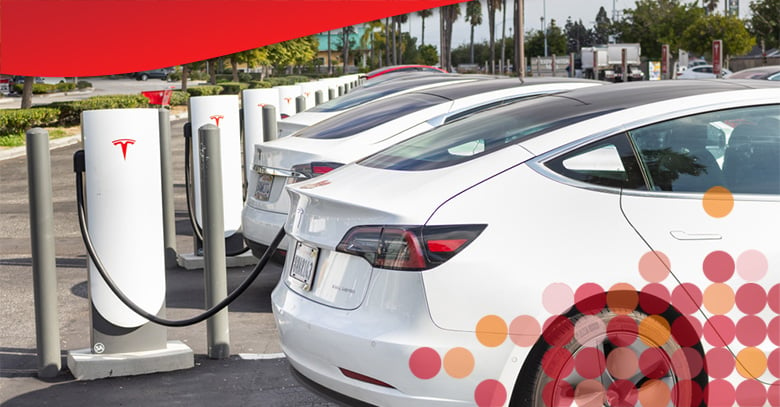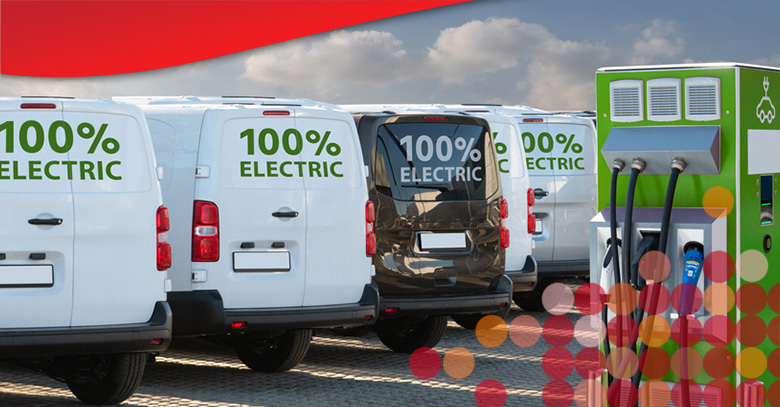As the shift to electric vehicles (EVs) continues to gain momentum due to growing environmental concerns, government regulations, and financial incentives, the challenges associated with this transition are also increasing. However, with the support of AI-powered technologies, companies can address and overcome many of these obstacles.
The Current State of The Electric Vehicle Industry
According to the IEA, the industry has seen exponential growth in the sale of electric vehicles and, concurrently, there has been an increase in range, model availability, and performance. The popularity of electric vehicles is growing, and recent estimates indicate that if the growth seen in the last two years continues, CO2 emissions from cars will be in line with Net Zero Emissions by 2050.
Within the last few years, electric car sales doubled to 6.6 million (a sales share of nearly 9%), which brought the total number of electric cars on the road to 16.5 million. However, there is still much room for growth worldwide. EV adoption globally has been slow mainly due to higher upfront costs and a need for more charging infrastructures..png?width=1200&height=1000&name=electric-car-registrations-and-sales-share-in-china-united-states-europe-and-other-regions-2016-2021(1).png)
The Current Challenges of EV Adoption
Electric vehicles can help fleet management companies improve their sustainability and reduce their environmental impact, improving their reputation and even helping to attract new customers. However, the high initial cost of electric vehicles (EVs) has long been a significant deterrent for companies considering EV fleet purchases, as many consumers believe EVs are unaffordable. Further, issues such as limited charging infrastructure and a scarcity of raw materials have hindered the widespread adoption of EV fleets.
We’ve listed the major challenges to EV adoption below for further consideration.
Managing Higher Upfront Costs
Electric vehicles present higher upfront costs than traditional gasoline-powered vehicles, which is a significant challenge for fleet owners who need to budget for and purchase multiple vehicles. In addition, higher vehicle costs and the complex system included in electric vehicles have resulted in higher insurance costs.
Over time, these additional costs may be offset by lower fuel and maintenance costs than internal combustion vehicles. However, an active AI-powered driver safety program will continue to be critical for covering insurance costs, improving efficiency, minimizing accident repair costs, and keeping drivers safe.
Charging Infrastructure and Standardization
The lack of charging stations in some areas presents a challenge for EV fleet owners, making it difficult to keep their vehicles powered. Additionally, the lack of standardization in charging systems makes it hard for fleet owners to ensure that their vehicles can be charged in different locations.
Current battery technology requires significantly more time to charge an EV than refueling a traditional gasoline vehicle to cover the same distance. This means that charging time, and charging station location, must be built into route plans and the accuracy of the charge time and location are critical to achieving planned timing.
Once your charging strategy is in place, Tourmo's AI-powered platform can monitor its implementation to:
- Notify you if there are any deviations or delays that could jeopardize the completion of your plan.
- Take the desired actions to adjust the plan automatically.
- Communicate any planned time deviation to those affected, downstream.
- Assist drivers in driving efficiently so your vehicle's range does not run out, and you get the most out of your electric vehicles.
Range Anxiety and Efficiency
Because many EVs have a shorter range than traditional vehicles, fleet owners can find it difficult to ensure that their vehicles can complete their routes without needing to be recharged. Further, companies will need to purchase electricity to charge their EV batteries, similar to buying fossil fuels today.
In regions where electricity is less expensive than fossil fuels, fleets will see a prompt decrease in operating costs as they shift from traditional vehicles to EVs. In the long run, fleets will aim to minimize the overall cost of electricity.
Research has found that aggressive driving can lower EV efficiency by as much as 30%. The same driving habits that consume more fossil fuels also use more electricity. Therefore, the key to managing the increased expenses of adopting EV vehicles is for a company to establish and maintain an active efficiency program that regularly monitors and encourages slower acceleration and longer, steady braking to generate electricity, which maximizes efficiency and range.

Tourmo’s AI-Powered Driving Behavior Solution
Managing risk in a fleet is as important, if not more important, as a company's transition to EVs. Drivers unfamiliar with EVs can be inexperienced with the instantaneous torque for acceleration and have a different risk profile. They tend to accelerate and decelerate more aggressively until they become accustomed to the vehicle's characteristics.
An actively managed safety program that offers automated feedback and system-driven coaching will play a critical role in helping drivers minimize their risk, improve efficiency during this period, and bring in supervisors only when necessary.
When using Tourmo's AI-powered platform, supervisors can gain valuable and insightful real-time information about vehicles, driving behavior, and risk. Our patented technology enables users to monitor, control, and address risky driving behavior in real-time, significantly improving driver safety.
Tourmo encourages drivers to participate in gamification and improve their driving skills without needing intervention. When the system detects a pattern of unsafe driving behavior, it will contact a supervisor for further assistance.
A few example benefits of using the Tourmo Driving Behavior product include:
- Up to 25% fewer accidents
- Up to 10% reduction in insurance premiums
- Up to 10% reduction in fuel and/or maintenance costs
- Up to 50% increase in driver engagement and satisfaction
- Increase in driver retention
Tourmo AI: Supporting EV Fleet Adoption and Sustainability
Tourmo is dedicated to helping companies increase their drivers' safety, efficiency, and productivity. The outcomes benefit organizations that use all available fuels today, including battery electric vehicles (BEV). As more fleet enterprises adopt electric vehicles, Tourmo AI can help these organizations adapt to their unique characteristics, leading to fewer accidents, lower costs, and higher engagement.
Tourmo uses patented AI technology to help companies switch to electric vehicles without needing to replace existing technology solutions. Our advanced technology also increases EV fleets' efficiency, engages drivers more, and reduces accidents, risks, liability, and costs. At the same time, companies get the most ROI from their tech stack with no rip-and-replace involved.
Author:
 Jason Gress, Director of Product Management
Jason Gress, Director of Product Management
As Director of Product Management at Tourmaline Labs, Jason Gress is responsible for guiding each step of our products’ lifecycles by focusing on the products and their customers first and foremost. He works to ensure the products meet customers' current and future needs. Jason brings more than 15 years of experience in software Product Management and has launched more than 20 products within the telematics and telecommunications industries. Jason’s professional passion is making technically complicated products easy to purchase, use, and support. He holds a Bachelor of Science in Management Science from Virginia Tech.





